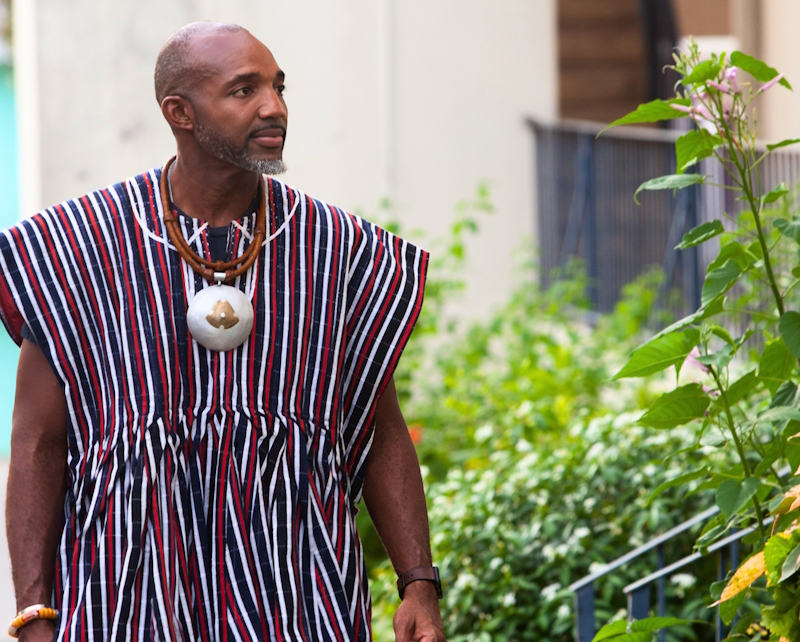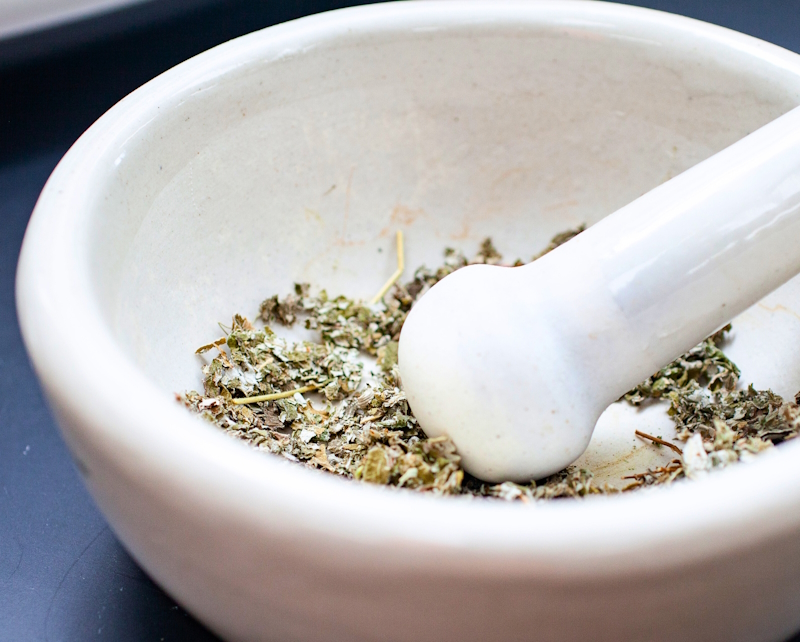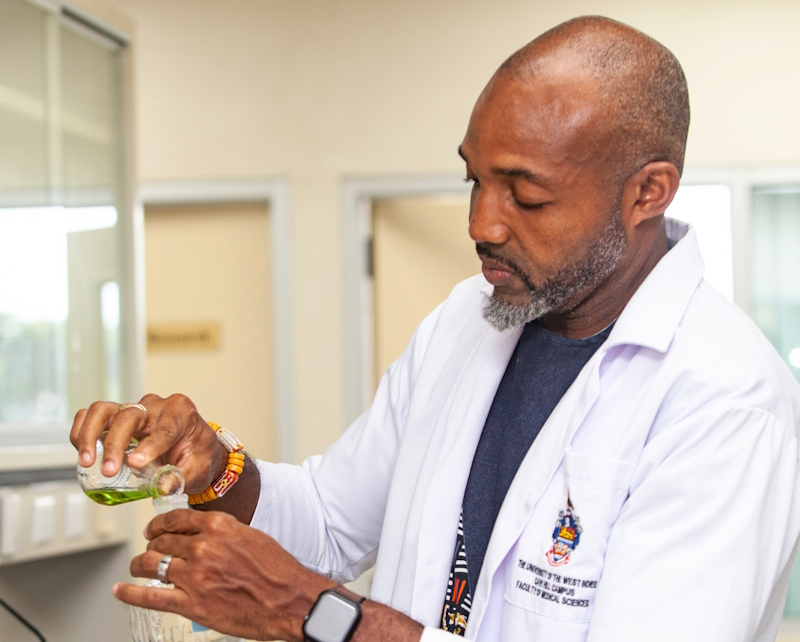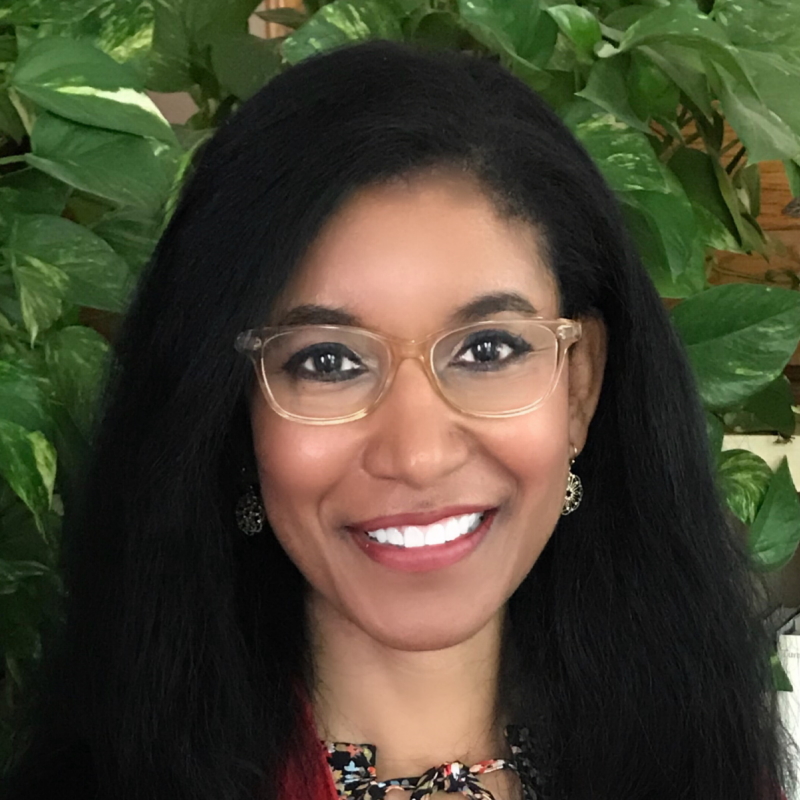To celebrate Black History Month, Dr Yemisi Bokinni takes us on a journey to uncover the scientific roots of plants in modern medicine through the work of Dr Damian Cohall, a researcher exploring how heritage informs nature’s potential to tackle our most pressing health challenges.

In 2014, at an event in London, I challenged an African herbalist’s claims about the potency of medicinal plants. As a junior doctor, I was sceptical of treatments outside of ‘real’ medicine, convinced that science only came from sterile labs. I hadn’t realised then that 11% of essential medicines, as listed by the World Health Organisation (WHO), originate from flowering plants, or that drugs like vinblastine for chemotherapy and galantamine for Alzheimer’s contain active compounds derived from the Madagascar periwinkle and the snowdrop.
The herbalist challenged me back, and months later, I found myself in a remote Nigerian town, visiting a community-led facility dedicated to cultivating and researching African medicinal plants. This encounter marked the start of my journey to decolonise my perceptions of where, how, and by whom scientific discoveries could emerge.
One such voice is Dr Damian Cohall, Senior Lecturer in Pharmacology and Dean of the Faculty of Medical Sciences at the University of the West Indies in Barbados, whose research is uncovering new possibilities for treating diabetes and its complications.
“The type of work that I do as a scientist, unravelling the medicine in plants, is essentially connected to the original use of those plants,” explains Cohall. “It also highlights how indigenous knowledge and ways of life and science contributed to Western empirical science.”
In Barbados, diabetes has reached epidemic levels, affecting one in five residents and half of those over 65. The shift to Westernised diets, dominated by ultra-processed foods has led to a surge in diabetes and diabetic foot ulcers. Combined with emerging evidence of genetic factors contributing to delayed wound healing, this has resulted in Barbados having one of the highest rates of diabetic foot amputations in the world.

Cohall and his colleagues are actively searching for solutions, one of which involves leading research into plant-derived therapies for treating diabetic foot ulcers. Their focus is on plants with wound-healing properties, guided by insights from indigenous communities and their knowledge of medicinal plants. Promising candidates include Justicia secunda (blood root), Senna alata (Christmas candle), and the skin of Annona squamosa (sweetsop).
“Senna alata is currently being investigated in the laboratories of the Faculty of Medical Sciences, jointly with the University of Cape Coast in Ghana,” Cohall said. “We wanted to create a transatlantic centre for translational research that would allow us to look into the traditional ways of life across the two continents and begin utilising this knowledge.”
Cohall emphasises that colonisation led to a significant loss of indigenous medicinal knowledge. “One could say that during the time of colonisation, there was an unfortunate inappropriate extraction of not only artefacts but knowledge from those spaces” he said. By imposing Western scientific practices, colonial powers often devalued indigenous knowledge, disrupting its transmission and leading to the destruction of ecosystems where these plants thrived. This erasure echoes the historical interactions where West African medicinal expertise was documented by institutions like the Royal Society without acknowledging the African botanists and practitioners who instructed them.

Cohall highlights the importance of preserving this knowledge, and recognising that indigenous practices hold untapped potential for addressing modern health crises. “I think what is important right now is that we have to capture this knowledge not only in writing, but in video and audio,” he said. “We also need to be very careful about the use of that knowledge, understanding that there are conventions which essentially govern how such information should be used so we don’t have indigenous communities being exploited.”
The COVID-19 pandemic and inequitable access to treatments and vaccines have since spurred scientists across the Caribbean, Africa and the rest of the Global South to seek solutions closer to home for their most pressing health challenges. Increasingly, within their own flora – not just as a connection to heritage, but as scientifically valid sources for medical breakthroughs.
By honouring these insights, Cohall’s work is part of a growing movement to reclaim health sovereignty, with the potential to inspire a new wave of scientifically validated, culturally grounded healthcare solutions – ones that not only serve their communities, but could benefit us all.
This post has been written as part of the Reclaiming narratives: ScienceWrite blog series which highlights the lives and achievements of extraordinary scientists from minoritised groups.








